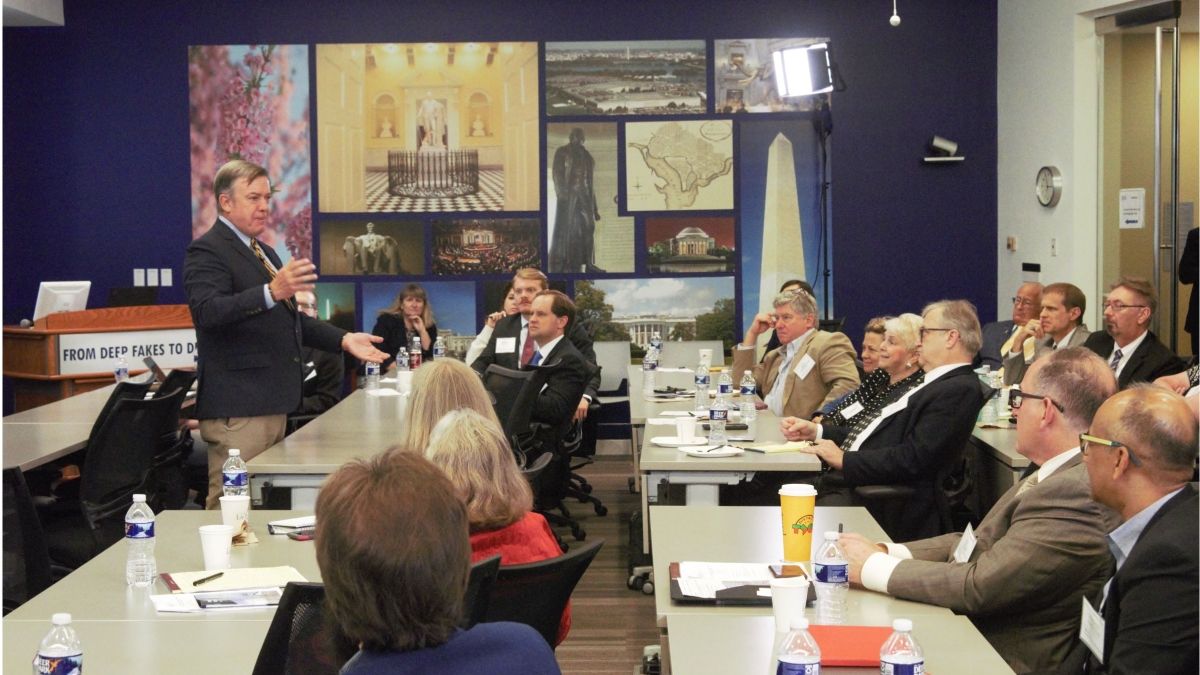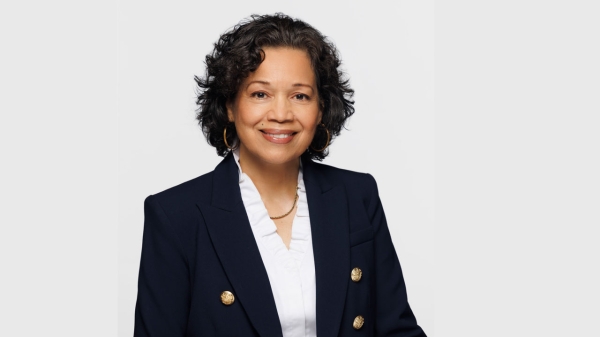ASU president delivers keynote at center launch in Washington, D.C.
President Crow talks about foresight as a way to grow institutions, organizations

ASU President Michael Crow talks about the advantages of foresight — and design-driven focus — for growing U.S. institutions and organizations at a conference launching the U.S. Government Accountability Office’s Center for Strategic Foresight in Washington, D.C., on Sept. 10.
The growing intersection of technology and politics, the implications for personal privacy and national security, and the increasing complexity of public policy problems of all kinds were the focus of “From Deep Fakes to Deep Space: Policy Challenges for the Future,” a conference sponsored by the U.S. Government Accountability Office’s (GAO) Center for Strategic Foresight.
In his remarks keynoting the conference, Arizona State University President Michael M. Crow focused on how the U.S. can use foresight as a way to help public institutions and organizations grow and evolve to meet pressing social challenges. Using ASU as a case study for thinking more broadly about “organizational technology,” he explained how public institutions can become more effective by aligning their mission and core work with the broadly shared values of the publics these institutions serve.
“We don’t spend enough time thinking about design in the public sector,” Crow said. “We think about implementation. We think about design here and there. But this notion of core values, these public values, and the world outside and everything that’s going on: This is the object of design.”
Crow also emphasized that the way that universities and other public institutions are designed to work should be considered a kind of technology. Large public organizations can use design and foresight to discover innovative solutions to complex challenges. Indeed, Crow explained that orienting ASU toward this kind of design has been the focus of his tenure as ASU president.
“We embrace complexity. We embrace the speed of change,” Crow said. “It's undeniable, unavoidable, can never be done away with. … But the design of the institution is anything other than just following some set of instructions.”
The convening served as the formal launch for the center, which is charged with enhancing the nonpartisan watchdog agency’s ability to identify, monitor and analyze emerging issues. The center is a unique entity in the federal government, one that reflects the GAO’s broad mandate to provide Congress with reliable, fact-based information for overseeing federal agencies and programs.
During his remarks opening the conference, U.S. Comptroller General Gene L. Dodaro emphasized the GAO’s priorities in the coming years. According to Dodaro, these priorities include examining the most important trends in the world and developing a list of areas that will require attention from Congress and the presidential administration. He also discussed the need for GAO to use foresight instead of hindsight to predict the issues that will require the country’s focus in the future to help government adapt to these challenges.
The GAO is an independent, nonpartisan agency that works for Congress, examining how taxpayer dollars are spent and providing Congress and federal agencies with information to help save money and work efficiently. The Center for Strategic Foresight, part of the GAO’s Office of Strategic Planning and External Liaison, will focus on using future planning to anticipate and identify our country’s challenges to government leadership.
More Law, journalism and politics

CBS News president to give keynote address at Cronkite School’s spring convocation
Ingrid Ciprián-Matthews, president of CBS News, will serve as the keynote speaker at Arizona State University’s Walter Cronkite…

School of Politics and Global Studies director's new book explores mass violence
Why do people commit atrocities and why are certain groups, including religious and ethnic, more vulnerable to large-scale…

ASU faculty contributing to improvement of Wikipedia
Many academics have a love-hate relationship with Wikipedia. While the website has information about almost anything you can…